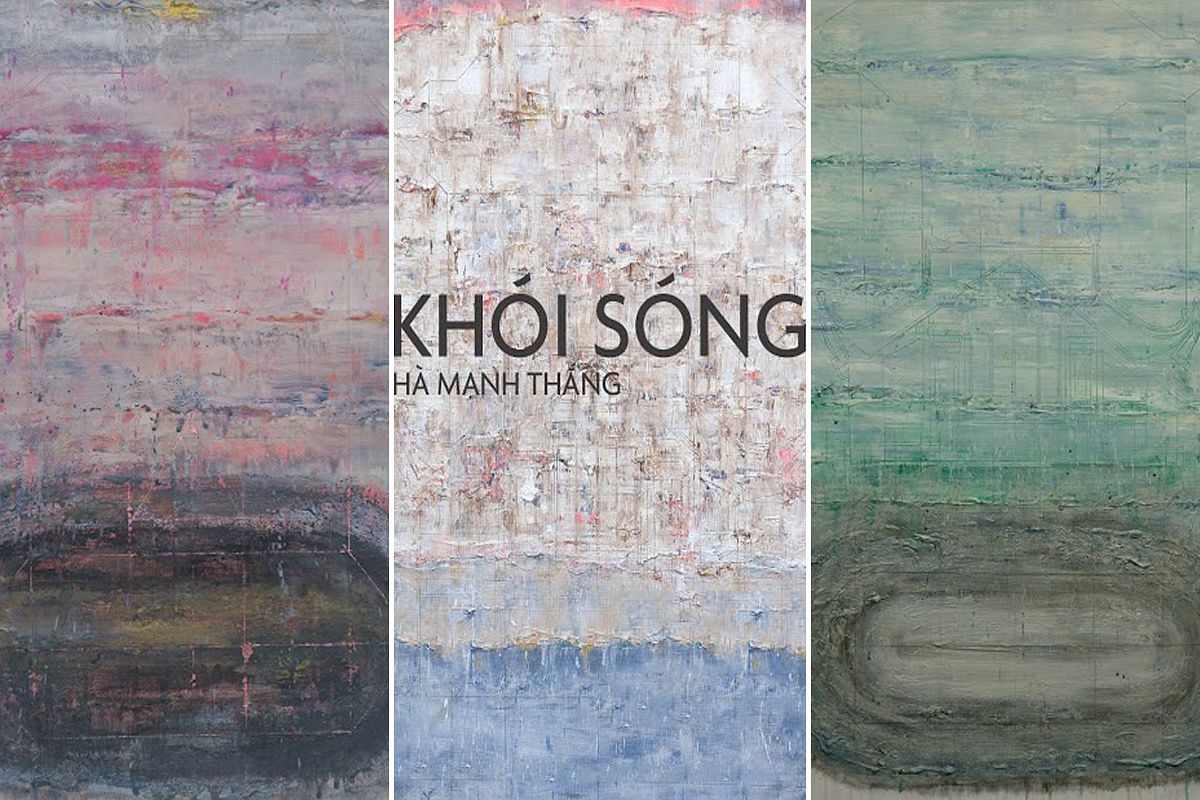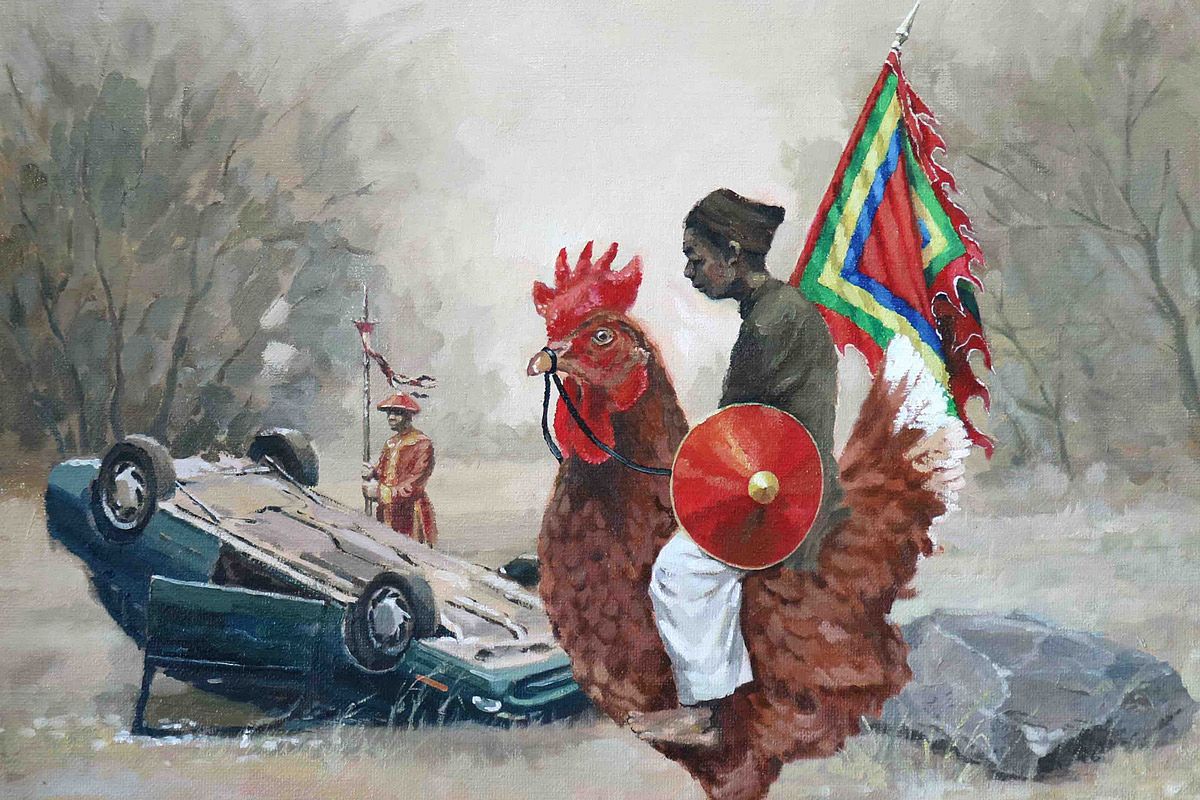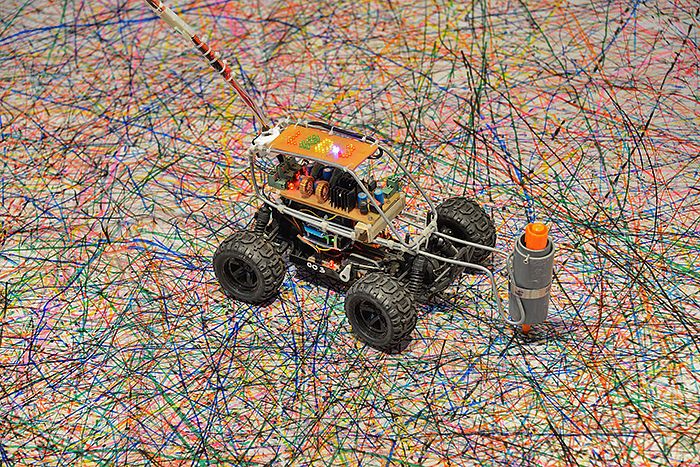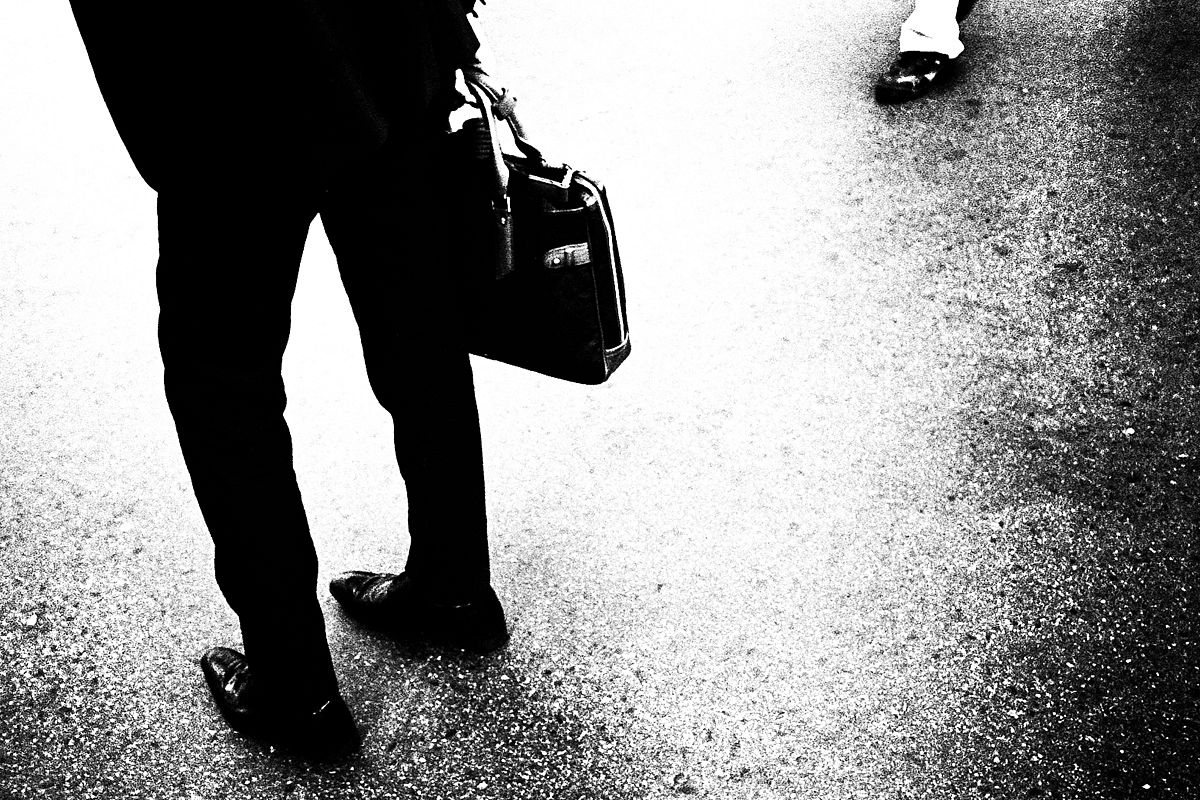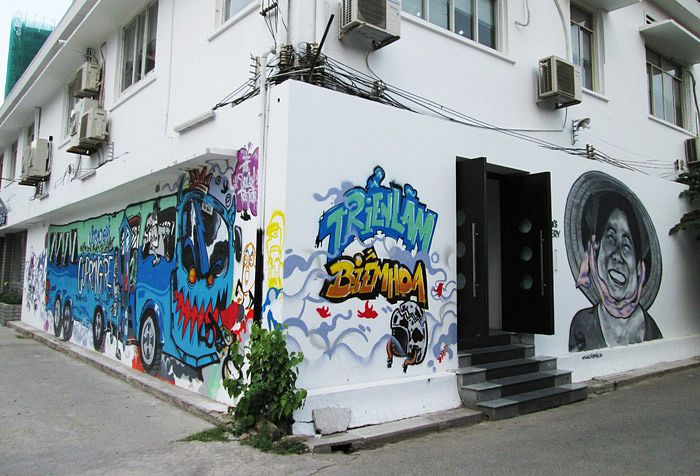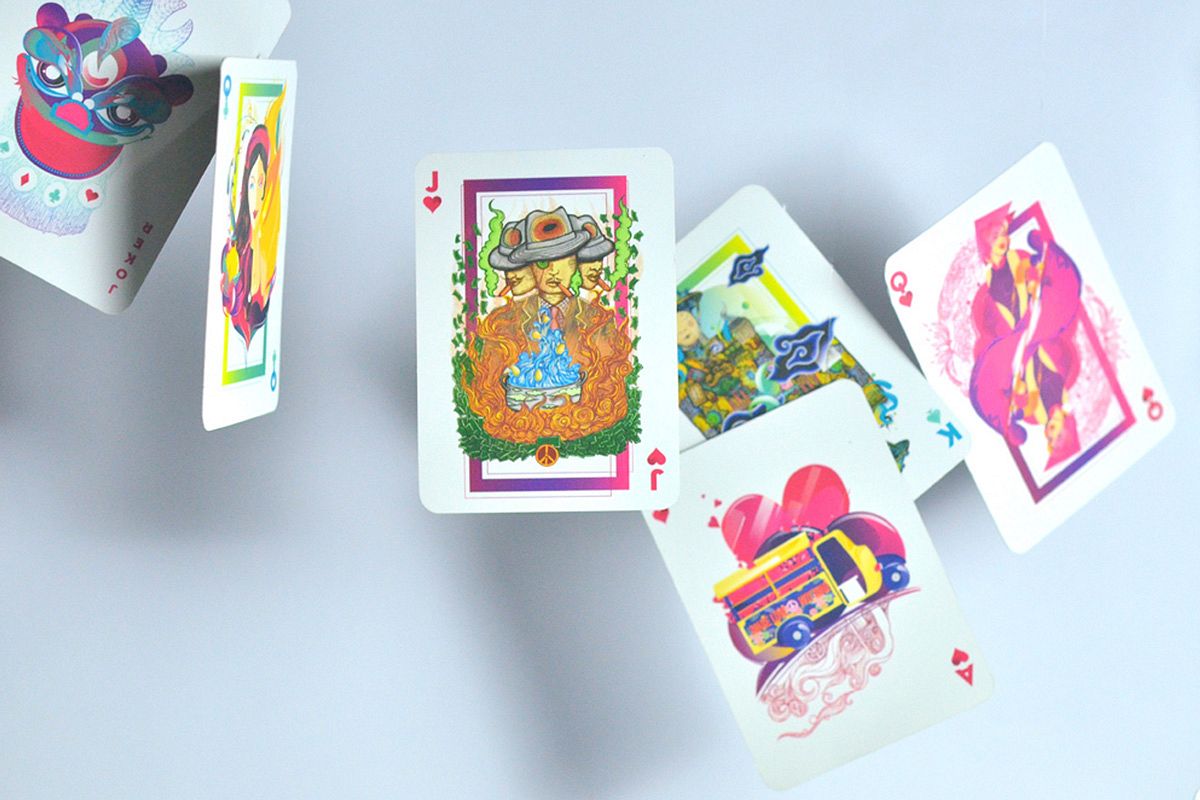Khói Sóng, Ha Manh Thang’s new exhibition and his second at Galerie Quynh, is part of the artist's ongoing Vietnam Landscapes (2010 – present) project, in which his reflections on Vietnamese culture and history take the form of architectural elements and iconic landmarks.
Related Articles:
- Zelda Goes To The Gallery: Urbana
- Zelda Goes To The Gallery: Mr. Bastian The Time Traveller
- Zelda Goes To The Gallery: A Material History Of Man And Animal
In the two years since his last solo exhibition in Saigon, Ha Manh Thang has changed a lot.
“As an artist, the greatest pressure is adapting to the constant changes in society and to keep improving my skills to personally interpret these changes,” the Hanoi-based painter says.
If you consider Thang’s previous exhibition, Heaven is a Place, which debuted two years ago, his new body of work is a radical evolution from his past efforts. “This exhibition is more like a turning point in the past five years of the project,” he says. “It changes from the tangible to the intangible.”
In Heaven is a Place, Thang focused on the symbolism of Vietnam’s most well-known monuments and buildings, such as the Hue citadel, Ben Thanh Market and Ho Chi Minh’s Mausoleum, with the intention of reconciling the historical and economic shifts in the country after đổi mới.
However, in Khói Sóng, Thang emphasizes the presence of Feng shui in architecture. “Feng shui has always been a big part of the survival lifestyle, which has characterised part of Vietnam’s history,” says the artist. “My artwork is my personal observation, and it becomes a visual record of the culture and history of Vietnamese people related to Feng shui.”
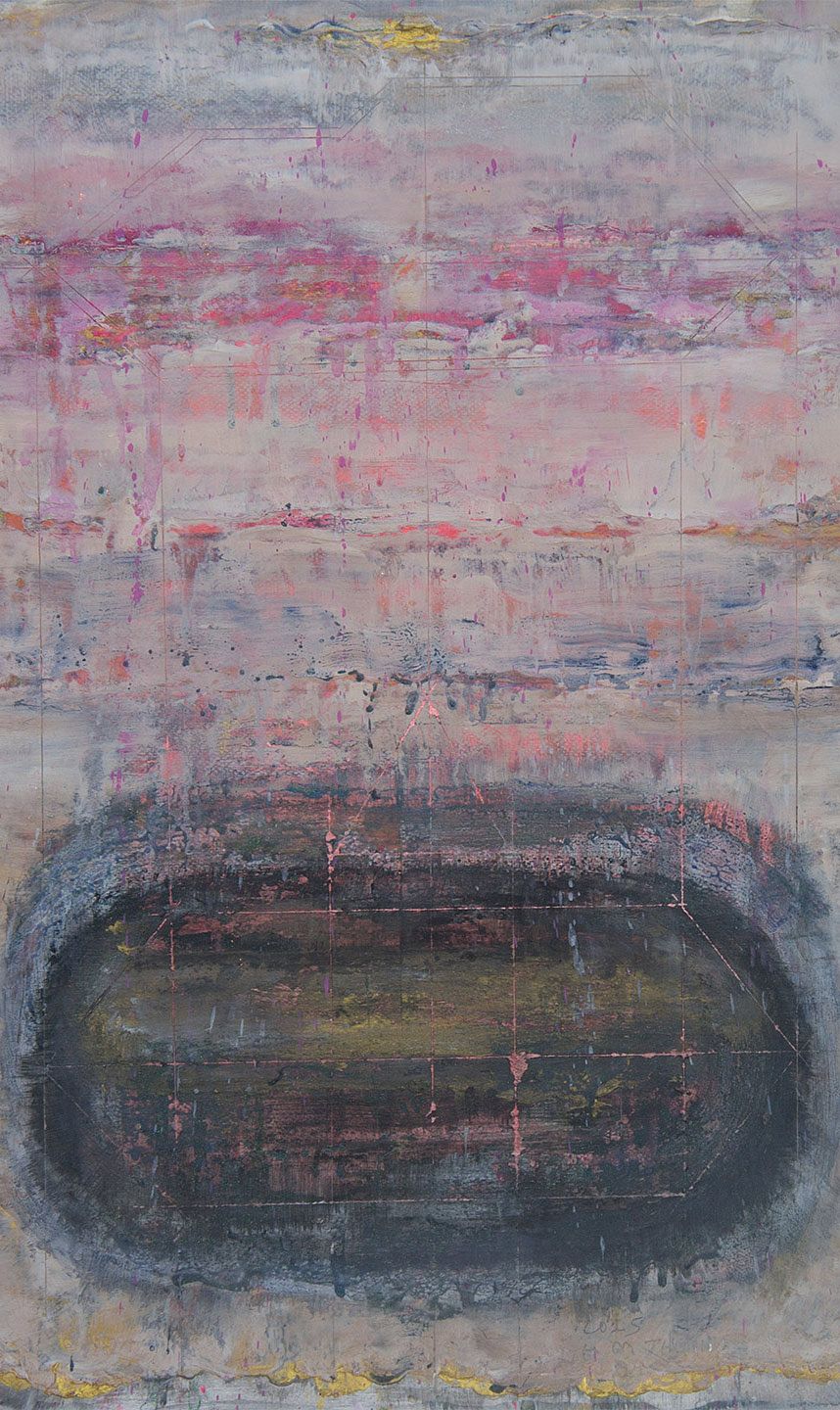
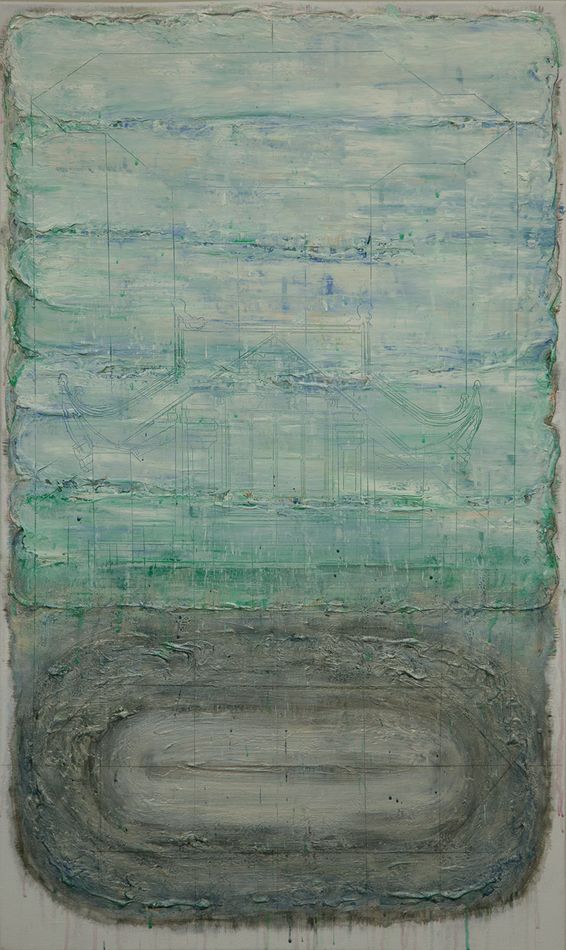
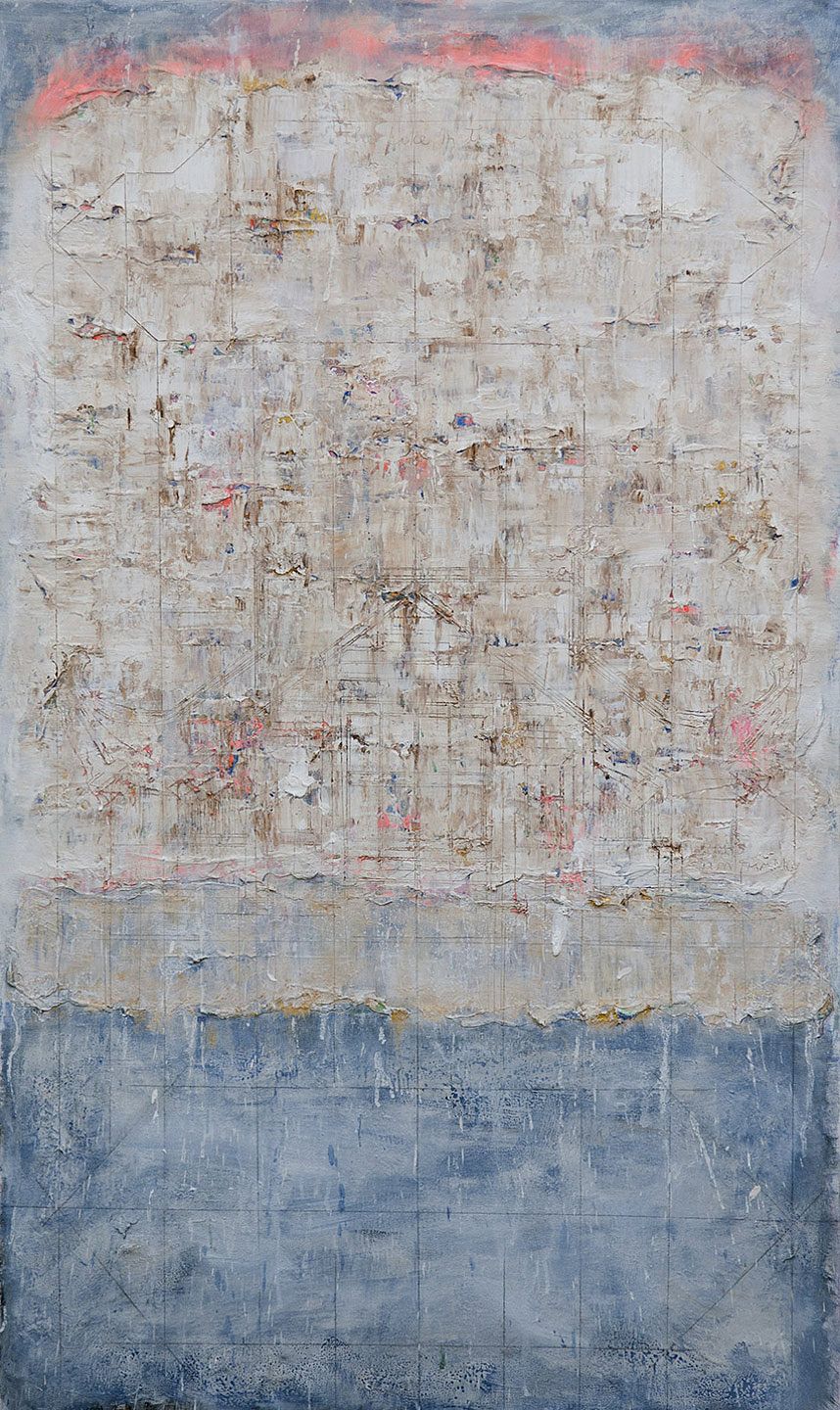
In Vietnam, ponds, lakes and streams of water are often found in front of pagodas, houses and shops. Even in a metropolis like Saigon, relentlessly charging its way towards modernization, these bodies of water carry the lifeblood of an ancient spirituality into modern skyscrapers and other luxurious buildings.
In Thang’s paintings, the element of water emerges as ethereal and mutates through pastel impastos applied on the canvas’ surface, evoking the movements of water through time and weather conditions. Each painting sees the recurring presence of a pagoda, whose structure is carved in the thick paint.
“For me, Feng shui is the foundation: everything has to balance in harmony,” explains Thang. “That is why I merged the element of water with simple architectural blueprints.”
Stencilled phrases - “This is Heaven” and “This is not Heaven” - are found on some of the pieces, illustrating the artist’s interest in his fellow citizens' ongoing struggle to reach self-fulfilment and self-actualization within a fast-moving society. “Everything gets too old too quickly,” he explains.
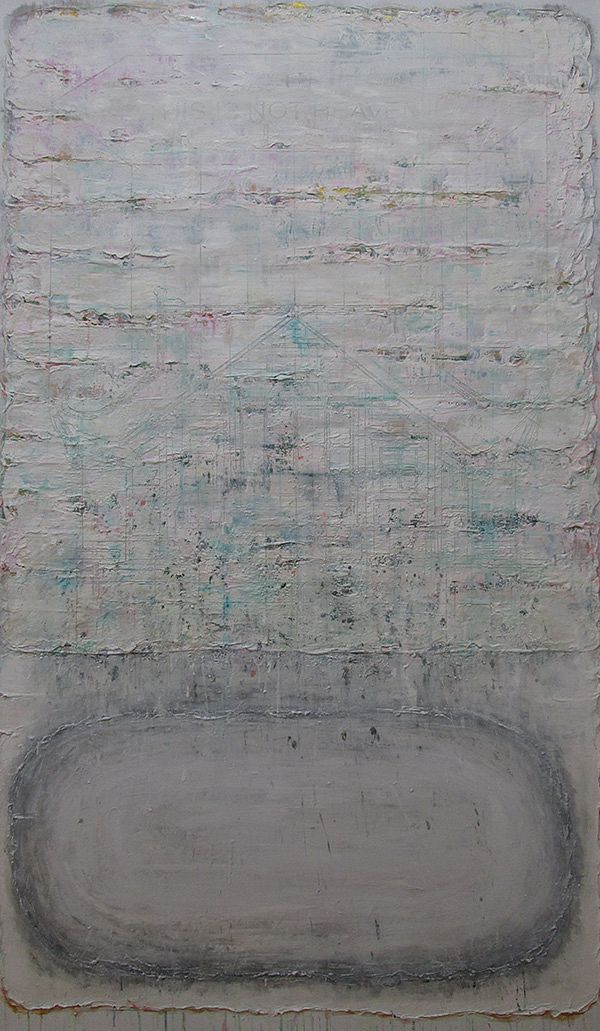
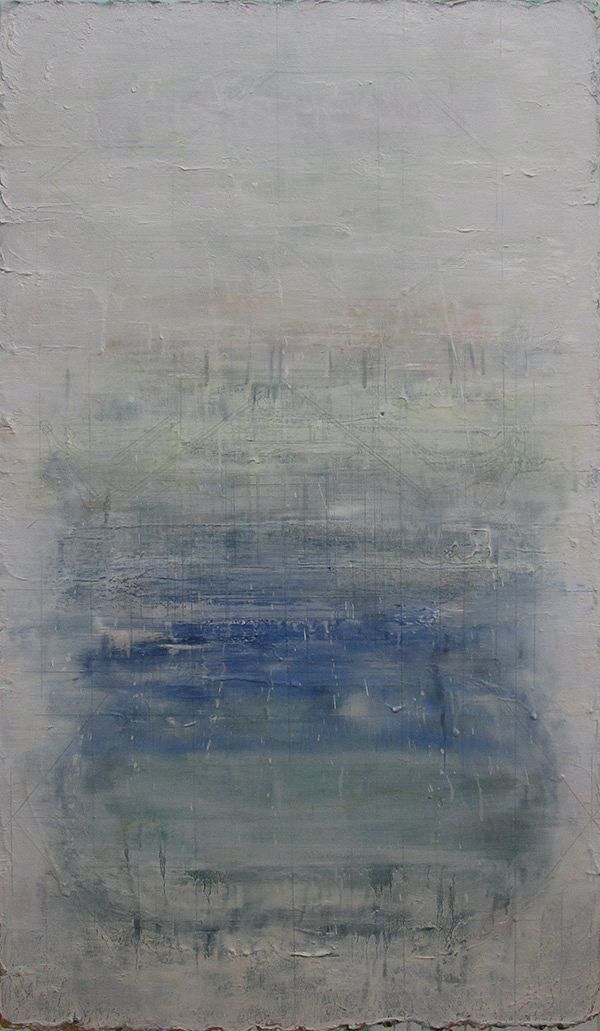
To a certain degree, Thang still employs basic architectural principles to compose his paintings. “I kept the very basics,” he says. “I just use a vertical axis to draw the pagoda – the tangible element – while the water is in front; it is the intangible.”
What is more striking is the shift in style from his previous work, although Thang likes to put it in a different way.
“I would not say that the style is different,” explains Thang. “When I work, I think the process naturally changes the style. During the process, I pay more attention to the enlightenment that comes from my kōan [in Zen Buddhism, a paradoxical question upon which students meditate]. For me, kōan is my observation of the matter in nature and how it changes from time to time.”
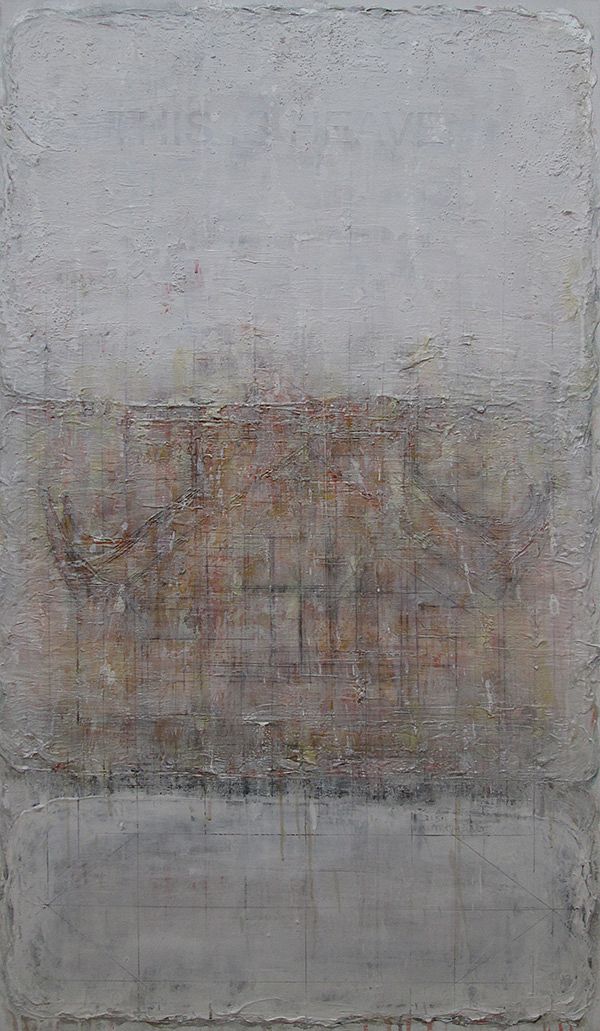
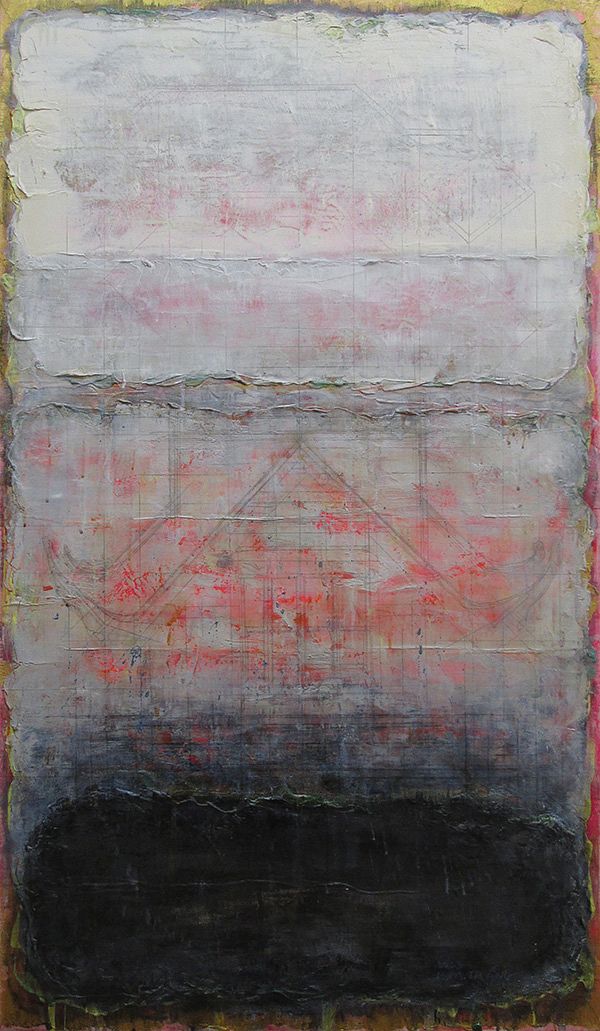
Looking at the paintings from afar, a calm and pure emotion surfaces from the pastel colors filling each canvas, yet the richness of the pagoda's delicate details, the stencils and the movement of the paint enriches Thang’s work with a deeper, renewed meaning that conjures Vietnamese spirituality.
Khói Sóng is on display at Galerie Quynh until October 31.
Galerie Quynh
151/3 Dong Khoi, D1
08 38 248 284
10am – 7pm, Tues to Sat

